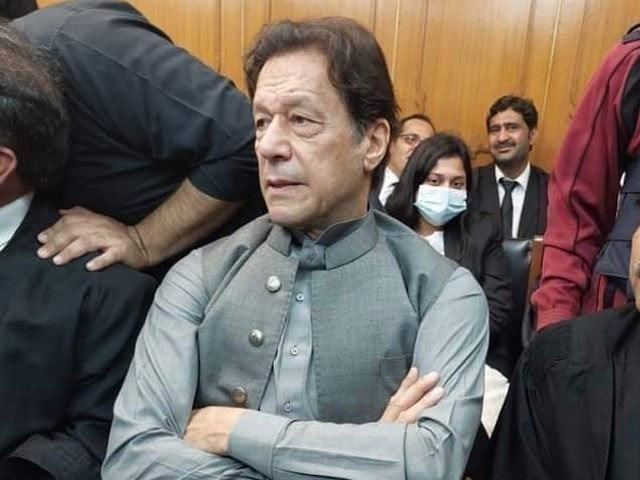Imran’s indictment in gifts case set for May 10
Court rejects PTI chief’s petitions challenging criminal proceedings against him

A local court in the federal capital will indict former prime minister and Pakistan Tehreek-e-Insaf (PTI) Chairman Imran Khan on May 10 in the Toshakhana case, filed by the Election Commission of Pakistan (ECP).
Additional Sessions Judge Humayun Dilawar on Friday dismissed two petitions filed by the PTI chief, challenging criminal proceedings against him in the Toshakhana case, after hearing arguments from both sides.
During hearing of the petitions, Imran’s lawyer Khawaja Haris and ECP’s counsel Amjad Pervaiz presented arguments. The judge admitted the case for hearing in the court and summoned the PTI chief in person on May 10 for indictment.
During the hearing, Khawaja Haris presented his arguments on the admissibility of the ECP's complaint and raised objection to the court’s jurisdiction to hear the case, saying that the sessions court could not hear the matter directly.
Haris further stated that the legal procedure of sending the complaint was also not adopted by the district election commissioner. He pointed out that complainant Waqas Malik was not the district election commissioner at the time of filing the complaint.
Read IHC extends stay on Mianwali by-polls
In support of his arguments, the lawyer referred to various sections of the Election Act and also cited various judicial precedents. Haris said that under the Election Act 2017, the petitioner could file a complaint within 120 days.
ECP lawyer Amjad Pervaiz told the court that the Election Act stated that the Criminal Procedure Code (CrPC) did not apply to every trial. He said that if the court found that an offense had been committed, it was empowered to proceed.
Pervaiz stated that the charge against Imran came under Section 173 of the Election Act. On December 15, 2022, he added, the court issued summon to the accused, yet despite the passage of so much time, the trial was being delayed.
He further said that Imran did not provide details of assets deliberately, therefore, the period of 120 days did not apply in such a situation. After the corrupt practice, he continued, Imran could not rely on 120-day timeframe.
After hearing the argument, the court reserved its ruling, which was announced later in the day. Pronouncing the verdict, the court rejected both the petitions of Imran had summoned him in personal capacity on May 10 for his indictment.



















COMMENTS
Comments are moderated and generally will be posted if they are on-topic and not abusive.
For more information, please see our Comments FAQ